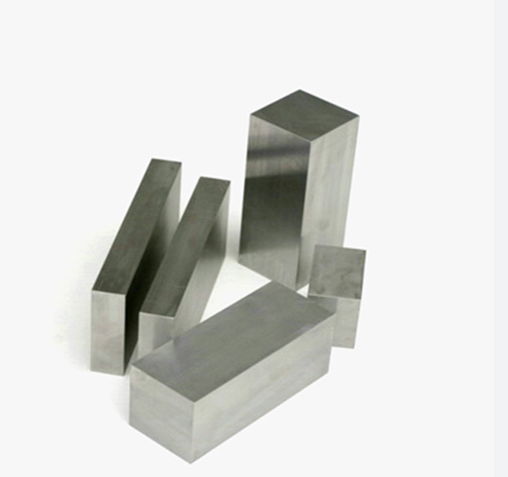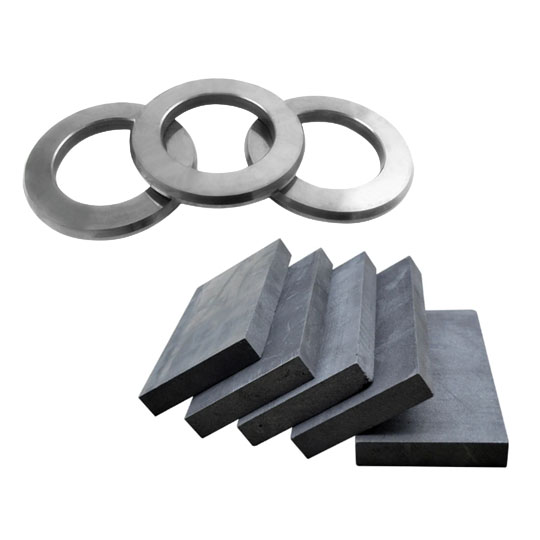Durabilité et dureté des Carbure de tungstène vs Titane
Carbure de tungstène est réputé pour sa dureté et sa durabilité extrêmes. Sur l'échelle de dureté de Mohs, il se situe entre 8,5 et 9, ce qui en fait l'un des matériaux les plus durs qui soient. À titre de comparaison, le diamant, la substance la plus dure, se classe à 10. Cette dureté se traduit par une excellente résistance aux rayures, ce qui explique pourquoi le carbure de tungstène est un choix populaire pour les alliances et les outils robustes.
TitaneEn revanche, il n'est pas en reste, mais sa dureté est légèrement inférieure. Il se situe à environ 6 sur l'échelle de Mohs, ce qui le rend plus sensible aux rayures. Toutefois, le titane compense par une ténacité supérieure : il peut résister à des chocs importants sans se fissurer, ce qui n'est pas le cas du carbure de tungstène en raison de sa nature cassante.
En résumé, si la résistance aux rayures et la dureté sont vos priorités, le carbure de tungstène est le grand gagnant. En revanche, si vous recherchez la résistance aux chocs, le titane l'emporte.
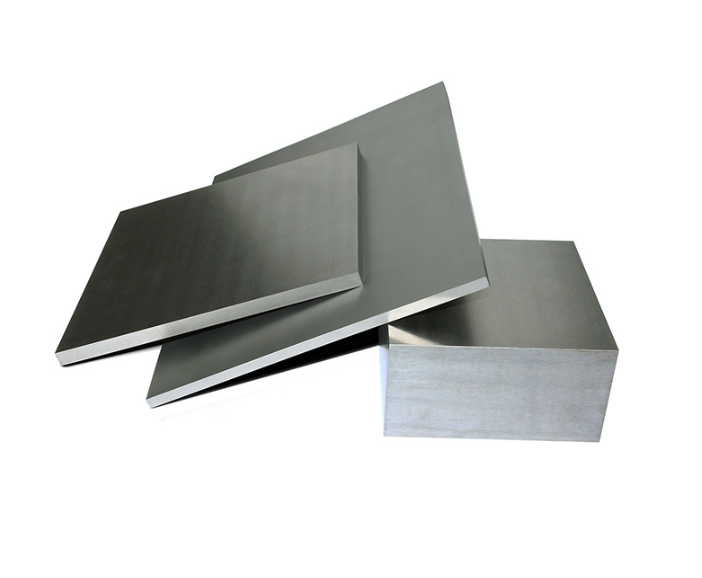
Poids du carbure de tungstène par rapport au titane
C'est ici que le titane prend l'avantage. Titane est incroyablement léger, avec une densité d'environ 4,5 g/cm³. Il est donc environ 45% plus léger que l'acier. Si vous portez une bague en titane ou utilisez un outil en titane, vous remarquerez à peine son poids.
En revanche, carbure de tungstène est beaucoup plus dense, avec une densité de 15,6 g/cm³. Il est presque aussi lourd que l'or, ce qui donne aux produits un aspect plus lourd et plus substantiel. Si certaines personnes apprécient ce poids pour son aspect luxueux, d'autres peuvent le trouver encombrant pour un usage quotidien.
Ainsi, si la portabilité et le confort sont essentiels, le titane est le meilleur choix. Mais si vous préférez quelque chose de solide et de lourd, le carbure de tungstène est votre choix.
Résistance à la corrosion des Carbure de tungstène vs Titane
| Propriété | Carbure de tungstène | Titane |
|---|---|---|
| Résistance à la corrosion | Bon, mais pas à l'abri de l'oxydation au fil du temps | Excellent, résiste à la plupart des environnements corrosifs |
| Applications idéales | Outils, applications industrielles | Environnements marins, implants médicaux |
| Revêtements | Nécessite souvent des revêtements supplémentaires pour la protection | Naturellement résistant à la corrosion |
Bien que le carbure de tungstène présente une bonne résistance à la corrosion, il peut s'oxyder dans des conditions extrêmes ou en cas d'exposition prolongée à l'humidité. TitaneCependant, il forme une couche d'oxyde naturelle qui le protège de la rouille et de la corrosion, même dans des environnements difficiles comme l'eau salée.
Esthétique et souplesse de conception du carbure de tungstène par rapport au titane
En matière de style, les deux métaux présentent des caractéristiques uniques. Carbure de tungstène offre une finition polie, semblable à celle d'un miroir, qui évoque le luxe. Son poids ajoute un sentiment de prestige, en particulier dans le domaine de la bijouterie. Cependant, sa dureté le rend difficile à redimensionner ou à modifier.
TitaneEn revanche, l'acier inoxydable est plus polyvalent. Il est plus facile à façonner et à graver, ce qui permet de créer des motifs complexes. Il est également disponible dans différentes finitions, du mat au poli, et peut même être anodisé pour obtenir des effets de couleur uniques comme le bleu, le violet ou l'or.
Pour ceux qui apprécient la souplesse de conception, le titane est la meilleure option. Mais si vous recherchez la durabilité et une sensation de qualité supérieure, le carbure de tungstène ne vous décevra pas.
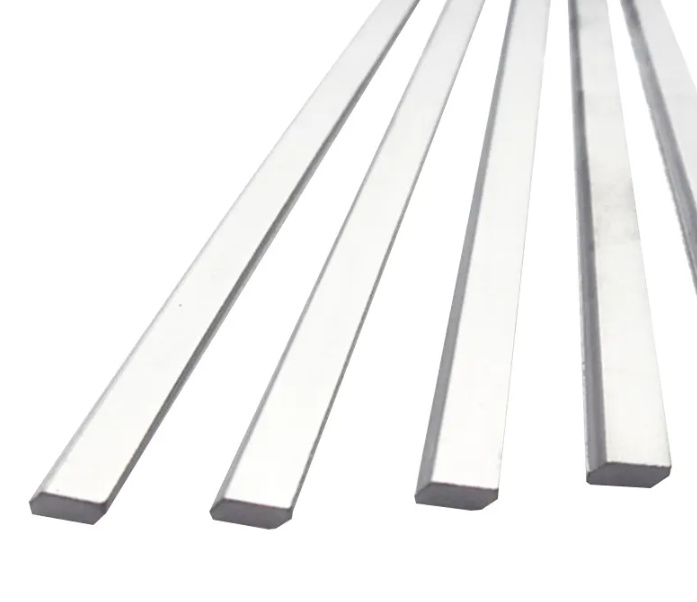
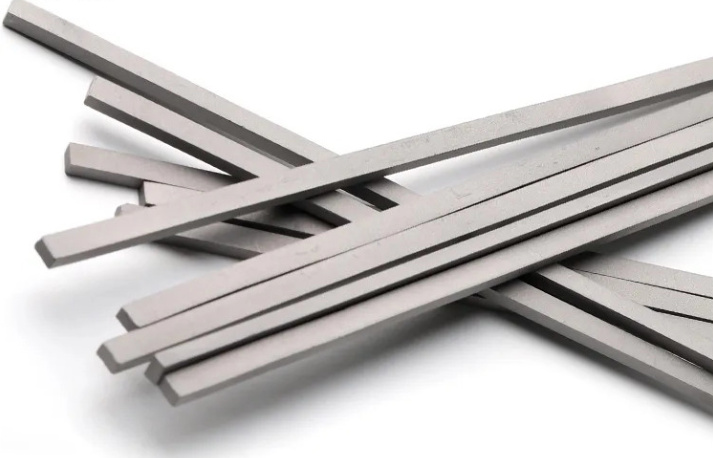
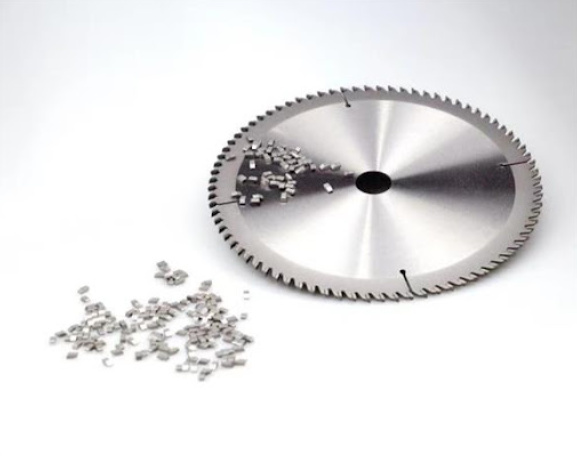
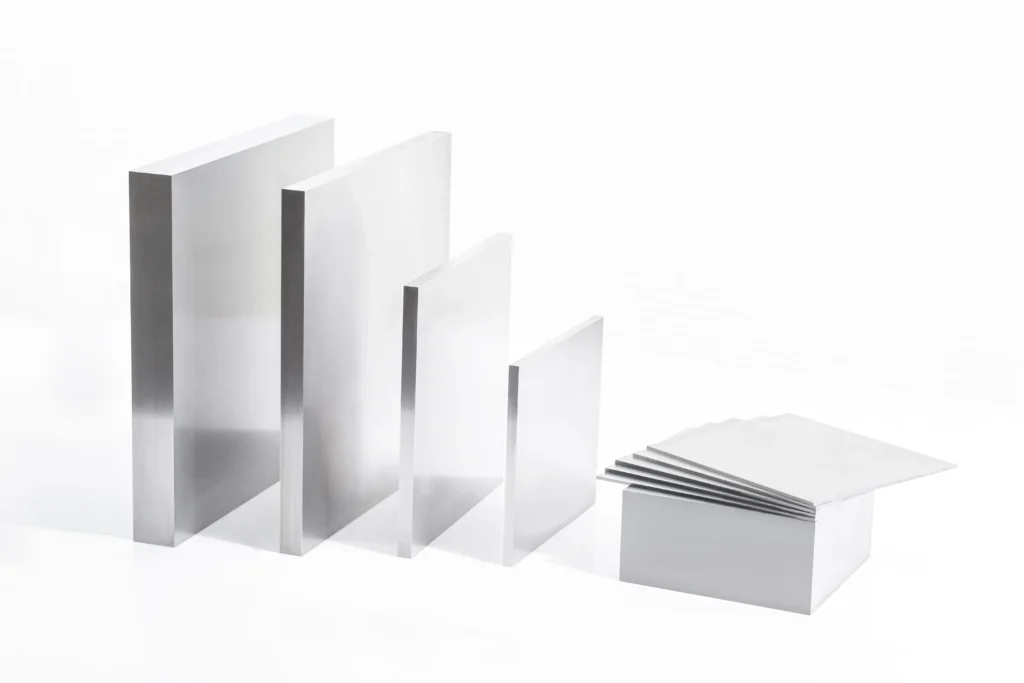
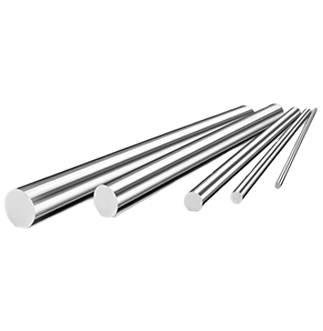
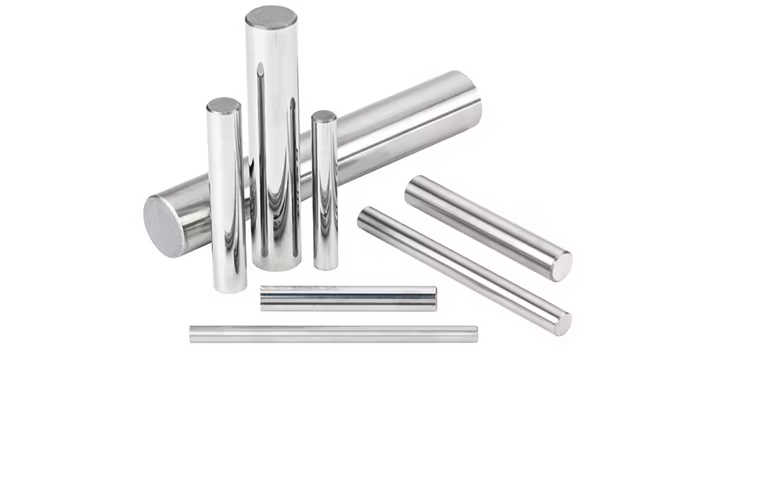
Applications du carbure de tungstène par rapport au titane
Les deux métaux excellent dans des domaines différents :
Carbure de tungstène Applications :
- Outils de coupe: Trépans, lames de scie et matériel d'exploitation minière.
- Machines industrielles: Pièces résistantes à l'usure comme les buses et les inserts.
- Bijoux: Bagues et bracelets qui résistent aux rayures.
Titane Applications :
- Aérospatiale: Composants légers pour les avions et les engins spatiaux.
- Médical: Implants et outils chirurgicaux en raison de leur biocompatibilité.
- Marine: Pièces de bateaux et équipements sous-marins grâce à leur résistance à la corrosion.
Coût de la Carbure de tungstène vs Titane
Le prix de ces métaux varie en fonction de leur application et de leur traitement :
- Carbure de tungstène: Généralement plus cher en raison de la complexité du processus de fabrication. Cependant, sa durabilité justifie souvent son prix pour les outils industriels et la joaillerie haut de gamme.
- Titane: Plus abordable pour la plupart des applications, en particulier dans les industries légères comme l'aérospatiale. Sa résistance à long terme à la corrosion le rend également rentable.
Si le budget est une préoccupation, le titane peut être plus accessible, mais la longévité du carbure de tungstène offre une meilleure valeur pour les utilisations intensives.

FAQ
| Question | Réponse |
|---|---|
| Lequel est le plus difficile ? | Le carbure de tungstène est plus dur et se situe entre 8,5 et 9 sur l'échelle de Mohs. |
| Lequel est le plus léger ? | Le titane est nettement plus léger, environ 45% de moins que l'acier. |
| Lequel résiste le mieux à la corrosion ? | Le titane excelle dans la résistance à la corrosion, en particulier dans les environnements marins. |
| Les bagues en carbure de tungstène peuvent-elles être redimensionnées ? | Non, en raison de sa dureté, les bagues en carbure de tungstène ne peuvent pas être redimensionnées. |
| Quel métal est le plus biocompatible ? | Le titane est plus biocompatible, ce qui le rend approprié pour les implants médicaux. |
| Lequel est le plus résistant aux rayures ? | Le carbure de tungstène est beaucoup plus résistant aux rayures. |

